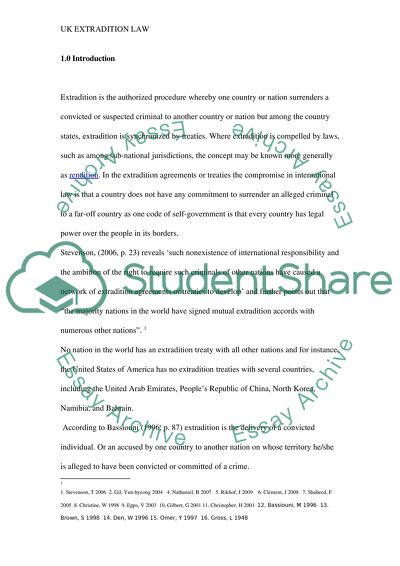Cite this document
(“UK extradition law Coursework Example | Topics and Well Written Essays - 3000 words”, n.d.)
Retrieved from https://studentshare.org/law/1393298-public-international-law
Retrieved from https://studentshare.org/law/1393298-public-international-law
(UK Extradition Law Coursework Example | Topics and Well Written Essays - 3000 Words)
https://studentshare.org/law/1393298-public-international-law.
https://studentshare.org/law/1393298-public-international-law.
“UK Extradition Law Coursework Example | Topics and Well Written Essays - 3000 Words”, n.d. https://studentshare.org/law/1393298-public-international-law.


